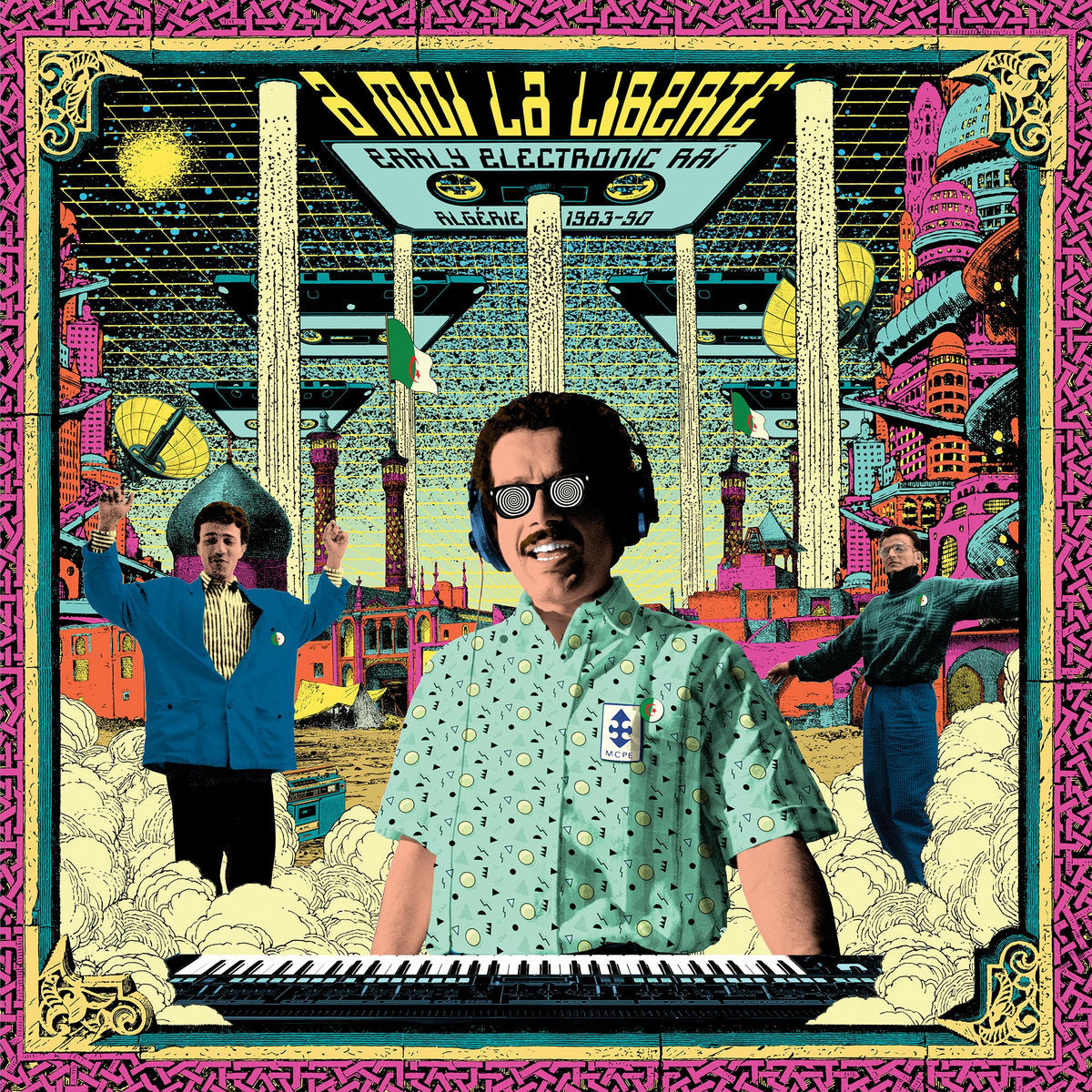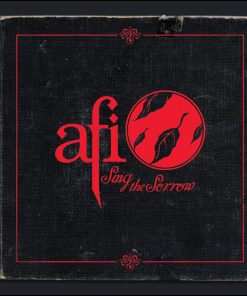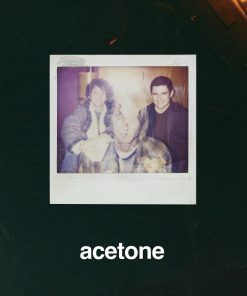Various – A Moi La Liberte: Early Electronic Raï – Algerie 1983-1990 2LP Born Bad (France)
$ 30,98 Original price was: $ 30,98.$ 18,59Current price is: $ 18,59.
Double LP version. Includes six-page booklet; includes download code. Delving into the deepest recesses of raï, this compilation serves as a tribute to its roaring years, but also as a rejuvenation of the genre in its sulphureous, subterranean version. It seemed like a good idea to dig into nearly untraceable cassettes, thus confirming it’s in the oldest of Oranese pots that the very best of raï is to be found. Just 50 years ago, no one would have believed even a bit in a genre seemingly bound to forever turn round and round in its native Oran, laying low in one of its many coastal road clubs. In these underground venues, singers — backed up by a minimalist orchestration for lack of space — would move their audience to laughs and tears, sobbing in a beer or chuckling down (dry) whisky. Through the pre- and post-independence years, from 1950 to 1970, raï urbanized itself, with a generation growing up between asphalt and concrete to the sound of traditional flute, but also and mostly listening to twist, French variété and rock music. Their names were Boutaïba S’ghir, Messaoud Bellemou, Groupe El Azhar, Younès Benfissa, or Zergui, and they passed on their collection of songs to the incoming “Chebs” — breathing a second youth into them. Oran, the capital of West-Algeria, will be at the heart of this rejuvenation. Overshadowed to the West by the bare mountain of Aïdour, a foot set onto a beautiful bay and the other on a long dried out wadi, covered up with buildings since, Oran must be the most European of Algerian towns — regardless of its kasbah, its sanctuary built in 1793 under the reign of the Bey Mohammed ben Othman and devoted to Sidi El Houari, the city’s patron saint, and praised in many a raï song, and its Pacha 18th century mosque built in memory of the displaced Spaniards of 1492. Oran is blessed with the sea and pine forests all around and above it, towards Sana Cruz. It is rich with Hispanic, Andalusian, Turkish, Arab-Berber and French influences. A cosmopolitanism is very much part of the city’s largely jovial nature. Some head for the open-air theater, renamed Cheb Hasni in honor of the creator of love raï, killed on September the 29th, 1994. Others take over restaurants before taking it all out on the dancefloor of one of the many clubs dotted along the coastal road. Features Cheb Hindi, Houari Benchenet, Chab Mohamed Sghir, Chaba Fadila, Cheb Tahar, Cheb Djalal, Benchenet, Cheb Kader, Chab Hamouda, Cheb Khaled “Schir”, Nordine Staïfi, Chaba Amel, Chaba Malika Meddah, and Tchier Abdelgani.
Fast Shipping and Professional Packing
We offer a broad range of shipping options due to our long-running partnerships with UPS, FedEx and DHL. Our warehouse employees will pack all goods to our exacting requirements. Your items are carefully inspected and secured properly prior to shipping. We ship to thousands of customers every day from all over the world. This demonstrates our dedication to becoming the largest online retailer in the world. Warehouses and distribution centres can be located in Europe as well as the USA.
Note: Orders that contain more than one item will be assigned a processing date depending on the item.
We will carefully examine all items before sending. Today, the majority of orders will be shipped within 48 hours. The expected delivery time will be between 3 and 7 days.
Returns
Stock is dynamic. It's not completely managed by us, since we have multiple entities, including the factory and the storage. The actual inventory can fluctuate at any time. It is possible that the stocks could be depleted after your order has been processed.
Our policy lasts 30 days. If you haven't received the product within 30 days, we're not able to issue a refund or an exchange.
To be eligible for a refund the product must be unopened and in the same state as when you received it. The item must be returned in its original packaging.
Related products
Uncategorized
Uncategorized
Uncategorized
Uncategorized
Uncategorized
Uncategorized
Uncategorized
Uncategorized
Uncategorized
Uncategorized
Uncategorized
Uncategorized
Uncategorized
Uncategorized
Uncategorized
Uncategorized
Uncategorized
Uncategorized
Uncategorized
Uncategorized
Uncategorized




































